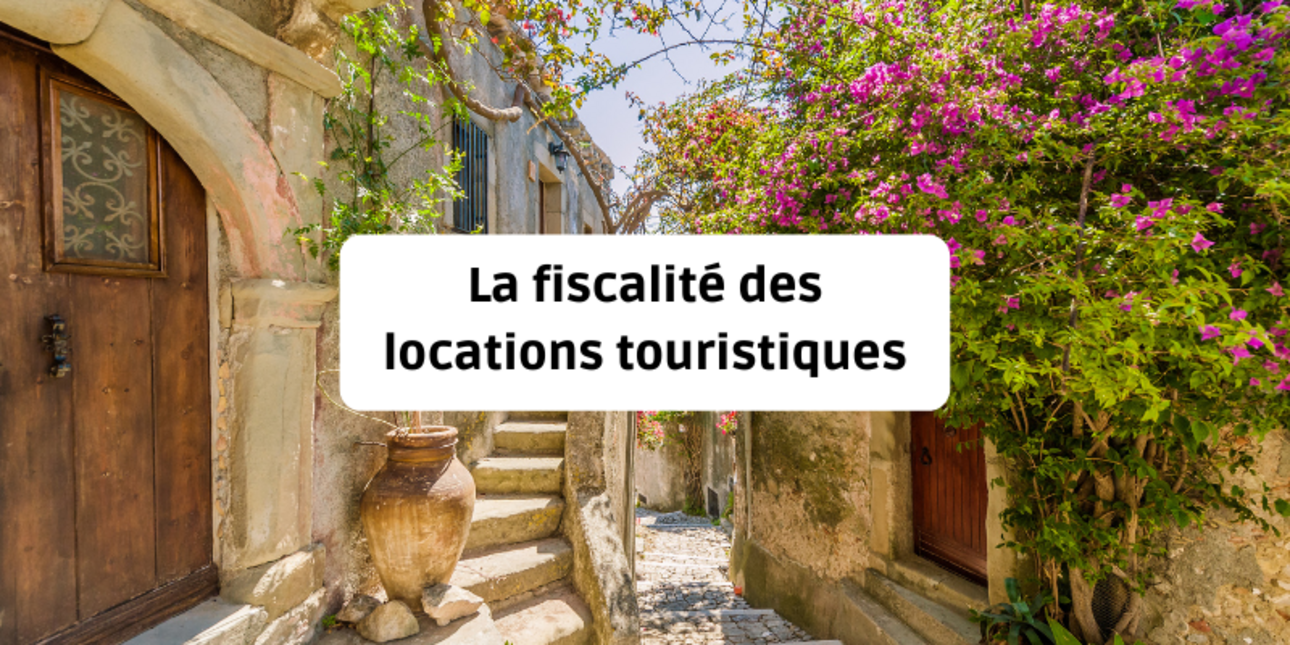
While tourist rentals attract many investors, it is necessary to understand the taxation of rental income. We present the main rules for calculating income tax, social security contributions and the Business Property Contribution.

First of all, you need to know which status you are depending on, on the one hand, the status of Non-Professional Furnished Lessor (LMNP) and, on the other hand, that of Professional Furnished Lessor (LMP).
The regime of "Loueur en Meublé Professionnel" is reserved for rentals that include all the furnishings necessary for normal occupation by the tenant. The mere presence of furniture is therefore not sufficient; the rental must, for example, include sheets, crockery, cutlery, etc.
The revenue generated by the activity must exceed €23,000 per year. It must also be higher than the total amount of the taxpayer's other income.
If your LMP activity generates a deficit, this deficit can be deducted from your overall income without limitation and the surplus can be carried forward for 6 years.
Furthermore, if your rental income is less than €90,000 and you have been in business for more than 5 years, you can benefit from a tax exemption on capital gains.
You qualify for the status of Non-Professional Furnished Lessor if at least one of the conditions is met:
Any deficits from your LMNP activity can then be carried forward for 10 years against your LMNP income.
When you resell your rented property, you will not be able to benefit from the exemption linked to your professional status. The sale price of your property will be subject to the capital gains tax regime for private individuals with a total exemption after 30 years of ownership.
Professional furnished tenants are subject to social security charges. These charges will be calculated on the basis of the fiscal income, i.e. that resulting from the micro-BIC or Real Profit regime.
For a Non-Professional Furnished Lessor, everything will depend on the amount of rental income:
Affiliation is to be made with the Sécurité Sociale des Indépendants scheme with a possible option for the general Social Security scheme if income is less than €82,800.
Income received from a rental activity comes under the Industrial and Commercial Profits regime.
Whether you are in LMP or LMNP, you have the choice of being taxed under the Micro-BIC or Real Profit regime
Your income must be less than €72,600 per year to qualify. Income from furnished rentals benefits from a 50% deduction.
Your taxable income will therefore be equal to 50% of your total rental income, regardless of the actual expenses you have incurred.
The thresholds are different for bed and breakfasts and classified furnished tourist accommodation. You can benefit from this system up to €176,200 of income and you will then benefit from a 71% allowance.
Your taxable income will therefore be equal to 29% of your total rental income, regardless of the actual expenses you have incurred.
However, there are certain conditions that must be met in order to benefit from this more attractive regime.
As far as bed and breakfast is concerned, the taxpayer may not operate more than 5 rooms and welcome more than 15 clients at the same time and he must have declared his activity to the town hall.
In order to benefit from the regime of classified furnished tourist accommodation, the property must be reserved for the exclusive use of the tenants and must not have a reception area, a reception hall or common services and equipment.
The property may be rented to the same tenant for a night, a week or a month, without exceeding 90 days for the same tenant. The owner must declare his property to the town hall (or obtain prior authorisation in certain municipalities) and must have obtained a classification from an authorised body.

The real profit consists of determining the taxable income by retaining the products (the rentals) and deducting the real expenses incurred by the company.
It is therefore necessary to keep accounts, which represents an additional cost.
This regime is applied by right when the Micro BIC thresholds are exceeded or if the business voluntarily opts to benefit from it.
The main advantage of this regime is the deduction of depreciation calculated on the value of the buildings and furniture. This depreciation greatly reduces income and often results in a taxable income close to zero and much lower than a property income for example.
Furnished rentals are not subject to VAT if they are not accompanied by the provision of services.
To benefit from this, the taxpayer must provide at least 3 of the following services:
This is a para-hotel practice.
In practice, the rental of gîtes makes it difficult to be subject to VAT, unlike bed and breakfast activities.
Furnished tenants are subject to the CFE, except for exceptional rentals of part of the main residence or when the rental income is less than €5,000.
The owner must therefore make an initial declaration for the first year of rental before 31 December of the year, then an annual declaration by 2 May at the latest.
The CFE is calculated on the basis of the rental value of the property subject to property tax. The tax rate then depends on the municipality of the property.
If the tax base is too low, a minimum amount of CFE is then called up according to the turnover of the activity.
Whether you want to run a gite, bed and breakfast or unusual accommodation business, you have all the information you need to make the right choice of tax regime.
On ma-propriete-touristique.fr you will find many properties to buy to launch your tourist activity.